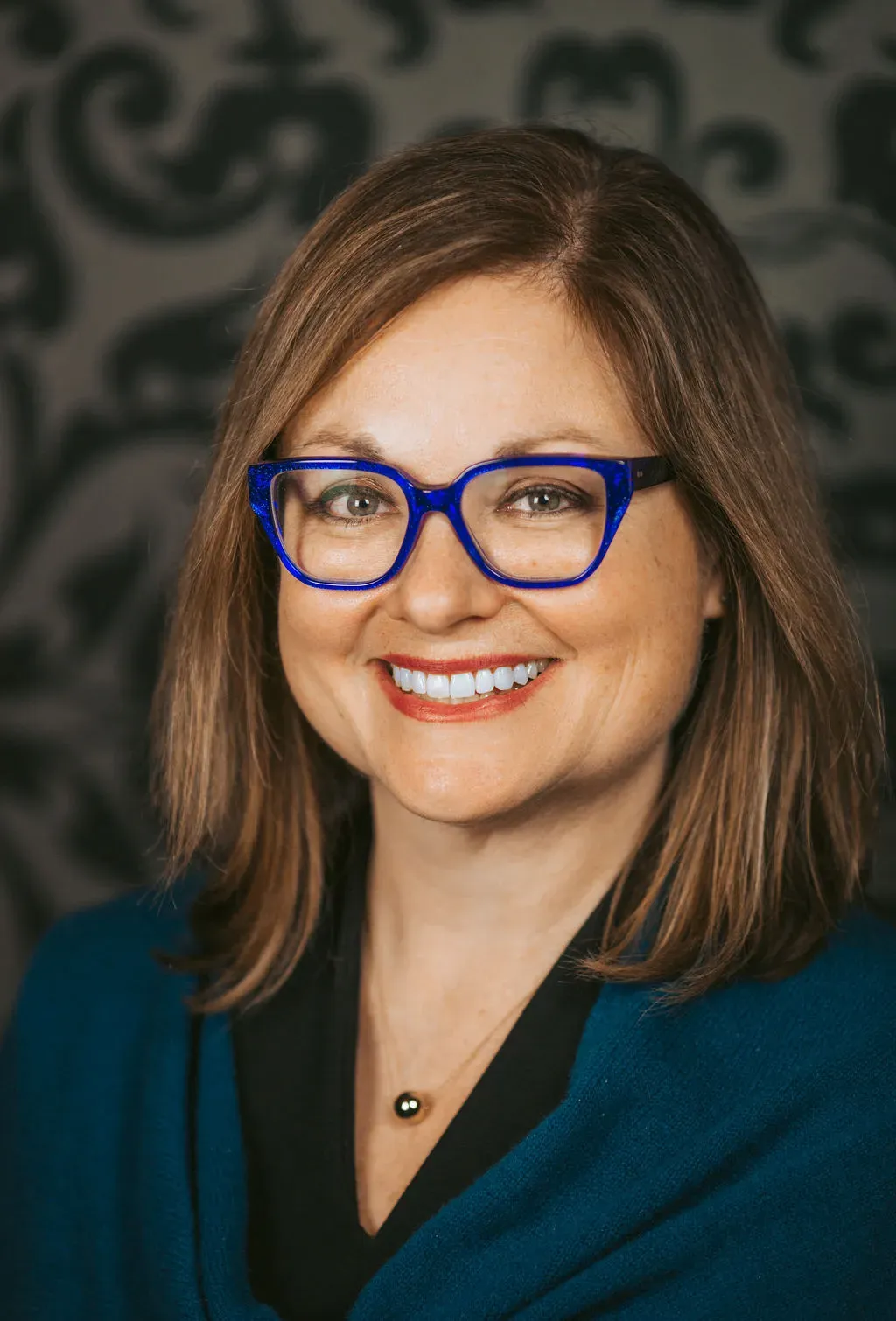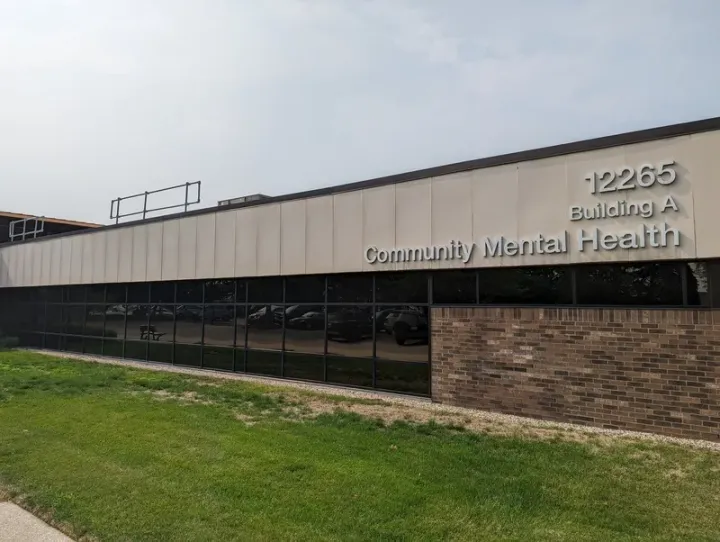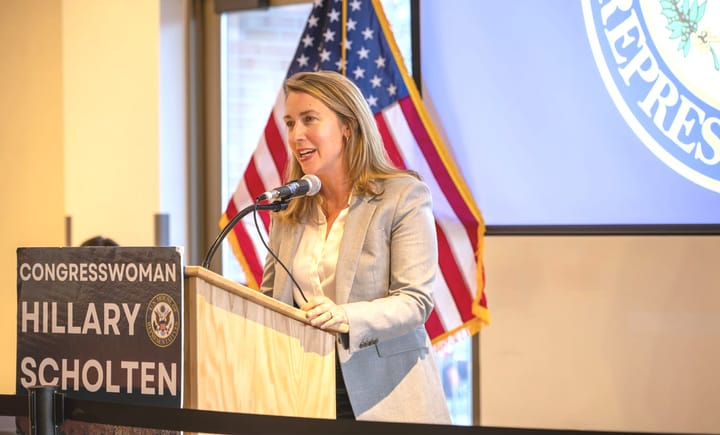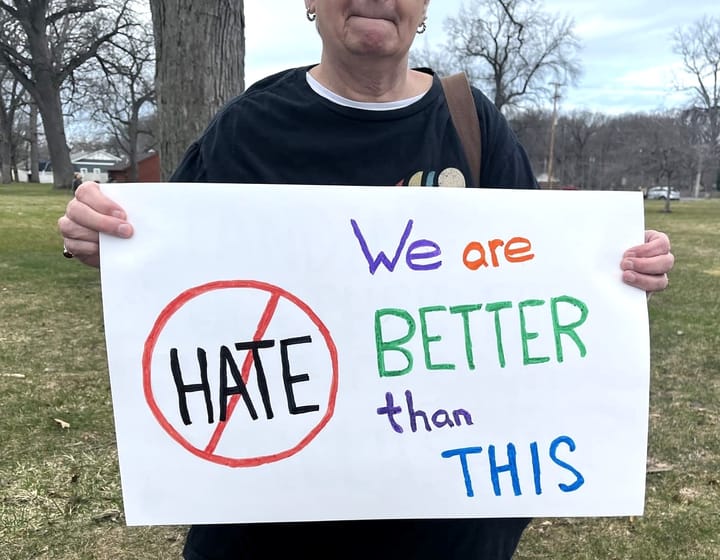OTTAWA COUNTY — A local attorney will continue representing a Grand Haven pastor suing the Ottawa County Board of Commissioners after the county’s attorneys asked a judge to disqualify her because she also is representing a commissioner in a lawsuit that now involves the board’s chair.
Kallman Legal Group, Ottawa County’s corporation counsel, filed a motion Oct. 10, claiming that Grand Rapids-based attorney Sarah Riley-Howard could no longer continue to represent Grand Haven pastor Jared Cramer and current Commissioner Chris Kleinjans in separate lawsuits that involve the county because it posed a conflict of interest.
Read More: Ottawa County: Attorney can't represent Cramer, Kleinjans in dual lawsuits that involve county
In her filed response Oct. 18, Howard said both Cramer and Kleinjans knew and approved of Howard representing them in the separate cases and have requested that she continue to represent them.
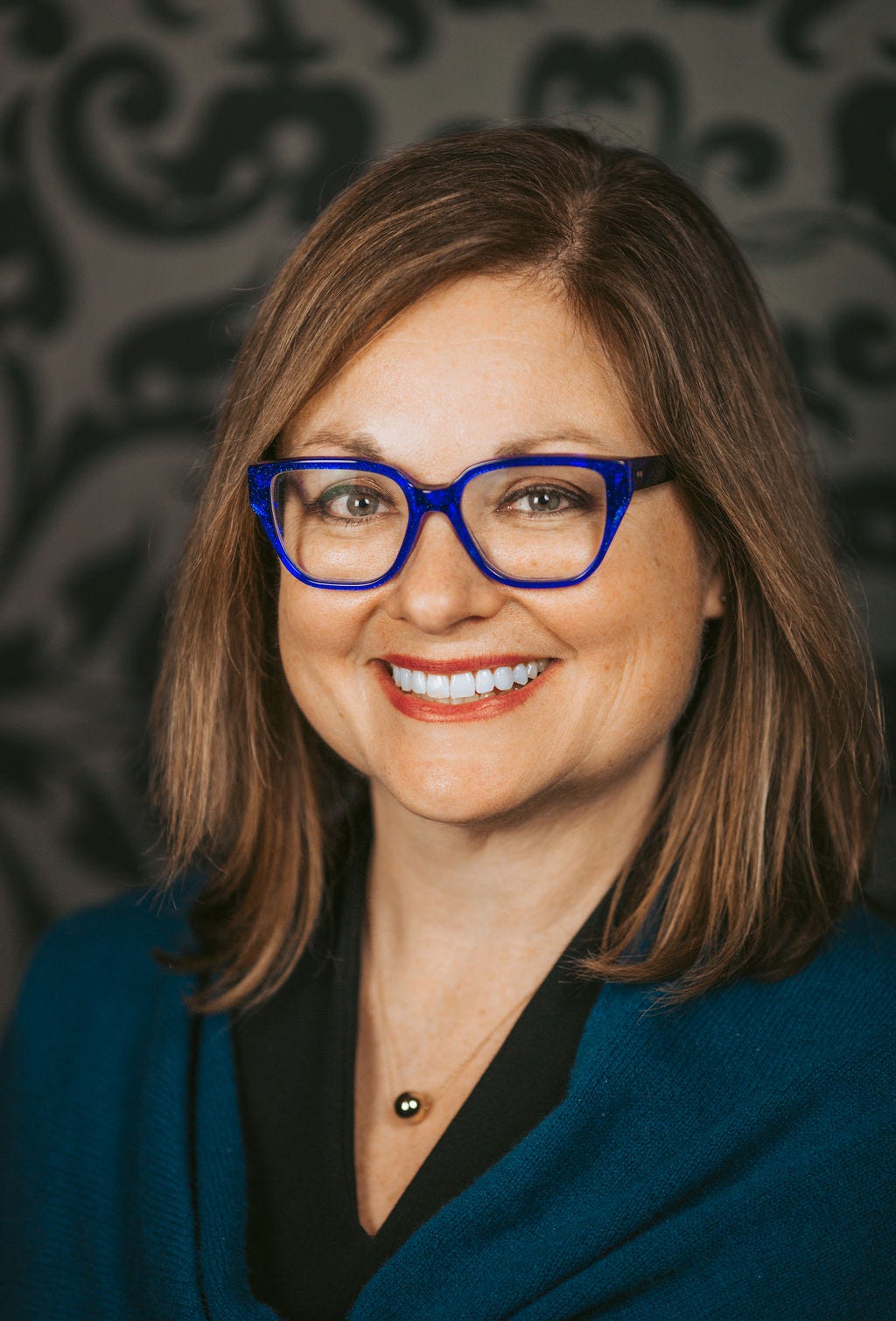
“There are not overlapping fact allegations in the two cases relevant to (the county’s) motion in this matter to disqualify Attorney Howard as … Cramer’s attorney,” according to the Friday filing.
In an Oct. 23 ruling, federal Judge Jane M. Beckering denied the county’s request to disqualify Howard from the Cramer case.
The Cramer case
Cramer filed his lawsuit in October 2023 in U.S. Western District Court, claiming Board Chair Joe Moss used his position to not grant Cramer’s request to provide an invocation for a commissioners meeting last year.
Cramer’s lawsuit claims that Moss endorsed “a particular set of religious beliefs and exclude a particular set of religious beliefs" and therefore "is discriminating against certain religious beliefs," which is a violation of the Establishment Clause of the First Amendment.
Howard, argued that the county enacted a formal invocation policy only after the lawsuit was filed and despite formally inviting Cramer to give an invocation late last year, it was too little, too late.
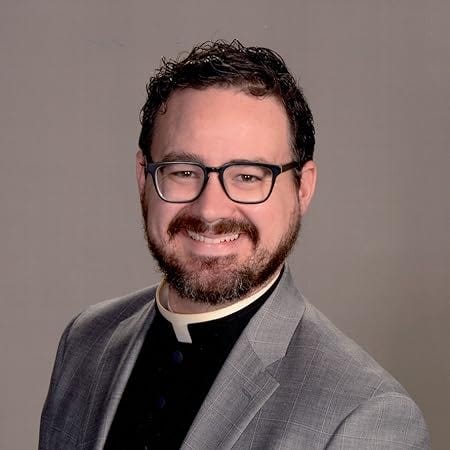
"The fact that, once they were sued, (the board) voted to implement a policy designed to follow the law and made a belated invitation to (Cramer) to lead the prayer does not let them avoid the legal remedies to which (Cramer) is entitled," Howard wrote in a Feb. 9 response to Kallman's request for dismissal.
Cramer ultimately gave an invocation prior to a commissioner meeting in February.
U.S. District Court Judge Jane M. Beckering ruled July 2 that the county’s request to dismiss the case didn’t negate the fact that Cramer experienced potential discrimination.
“The harm alleged by Rev. Cramer is anchored not in future events but in disputed interpretations of past events,” Beckering wrote in the opinion published Tuesday. “His pleading sufficiently alleges a concrete factual context from which his claims arise. The court further determines that judicial resolution of the claims would be desirable under all of the circumstances.”
Cramer, of St. John’s Episcopal Church in Grand Haven, claims he first asked Commissioner Roger Bergman, who represents the city of Grand Haven, if he could join the historically practiced rotation of area faith leaders who provide the invocation at the twice-monthly board meetings. He was directed to Moss.
Moss is the founder of far-right fundamentalist group Ottawa Impact, created in 2021 after he took issue with pre-K-6 school mask mandates during the COVID-19 pandemic. The group currently controls six seats on the 11-member board of commissioners.
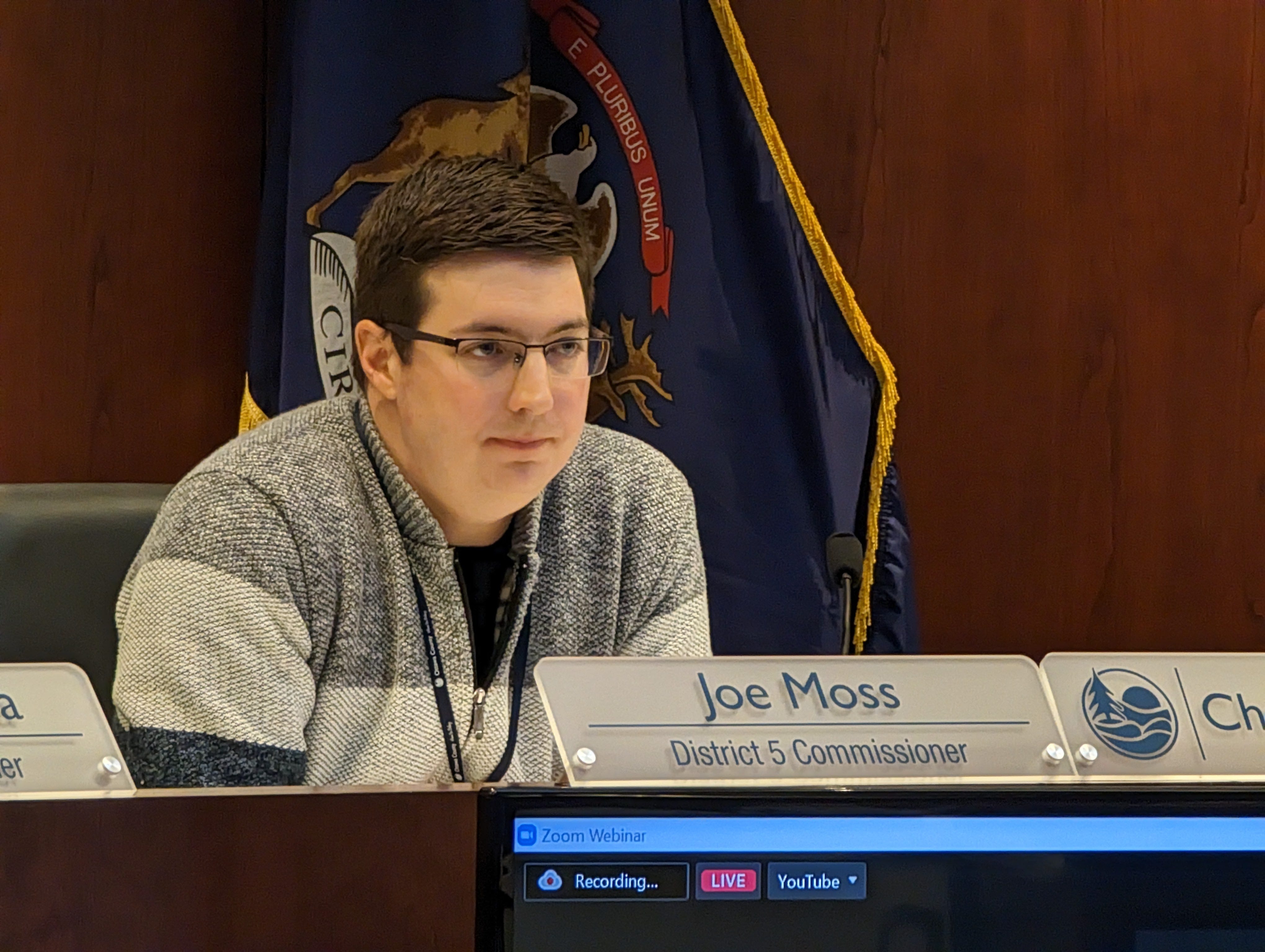
Howard said Moss has abused his power to reward or punish local faith leaders based on whether they align with his personal religious beliefs.
Howard said that, despite sending Moss an email in May and a letter via certified mail in August, her client only received an invitation to give an invocation after litigation was filed.
"It's not clear what else Rev. Cramer could have done to get on that list," Howard wrote. "He had given the prayer in the past, he had made a request to the commissioners of the districts where he lived and worked, and he had made a request to the chairman of the commission. Nonetheless, Rev. Cramer did not receive an invitation to lead the prayer."
Then, as Cramer delivered his long-awaited invocation on Feb. 13, OI District 9 Commissioner Roger Belknap displayed a sign that said "SaveTheChildren.com," a reference to the documentary “The War on Children” created by prominent right-wing activists Robby and Landon Starbuck, vocal critics of the LGBTQ+ community.
Read More: Ottawa Commissioner Belknap displays problematic sign during long-awaited invocation
Howard said the sign was clearly intended to antagonize her client.
"The sign that Commissioner Belknap displayed, referencing 'The War on Children' while Rev. Cramer gave the invocation, felt very much like a continued trope to attempt to justify Ottawa Impact’s discrimination toward the LGBTQ community," she told this reporter for an interview in The Holland Sentinel.
The Kleinjans case
Commissioner Chris Kleinjans is suing Michigan State University’s Extension Office and Moss individually for his alleged role in that case.
Kleinjans, who joined the commission on May 23 after winning a May 7 special recall election this year, filed his own lawsuit June 21 in the U.S. Western District Court claiming Extension violated his First Amendment Rights after giving him an ultimatum after he was elected: Take an unpaid leave through the remainder of the year or face termination.

Moss was added as a defendant in the Kleinjans case on Aug. 20, just days after M. Scott Korpak, the new District 7 director, confirmed that during a Dec. 7 meeting with then-interim director James Kelly, Moss and Ottawa Impact Commissioner Allison Miedema, the commissioners “threatened” the annual memorandum of understanding between the Extension and the county.
Howard said Kleinjans was not on the commission during the relevant time period when the substantial facts of Cramer’s case occurred.
“Moreover, Attorney Howard’s representation of Kleinjans is solely in his capacity as a private citizen who was terminated from his employment, which occurred before he was sworn in as a commissioner,” Howard wrote.
She said Kleinjans would recuse himself from any matters that involve his lawsuit that could come before the board.
What happens now
In her ruling denying the disqualification request, Beckering said there was no evidence of a direct conflict.
“While Attorney Howard is acting as an advocate in Reverend Cramer’s case against the Commission, of which Kleinjans is now a member, Attorney Howard is not suing Kleinjans in his individual capacity; rather, Reverend Cramer’s suit challenges the propriety of the decision of the political body. Conversely, the employment case that Attorney Howard is pursuing on Commissioner Kleinjans’ behalf is brought in his individual capacity. Hence, Reverend Cramer’s and Commissioner Kleinjans’ interests are not “directly” adverse,” Beckering wrote in her Wednesday order.
“While Defendants have identified potential areas where they may be prejudiced by Attorney Howard’s concurrent representation of Reverend Cramer and Commissioner Kleinjans, the harm Defendants describe is future-looking, and not a basis upon which disqualification is justified. The Court presumes that care can be taken to effectively cabin such potentialities and that the parties can, in good faith, engage in efforts to settle their dispute,” Beckering wrote in her Wednesday order.
In a separate order also issued Oct. 23, U.S. Magistrate Sally J. Berens denied the county’s request to delay an early settlement conference in the Cramer lawsuit, which is scheduled for Monday, Oct. 28 — mainly because the request was based on the county’s disqualification request.

Cramer Orders 10264KB ∙ PDF fileDownloadTwo orders were issued on Wednesday, Oct. 23, 2024, responding to requests from Ottawa County to disqualify Sarah Riley-Howard from representing Rev. Jared Cramer and to delay an early settlement conference. Both were denied.Download
In addition, Berens clarified who must attend the conference after the county seemed unclear on what the requirements are for mediation.
The OI majority on the board voted to create a subcommittee of three commissioners — Moss and two other OI commissioners — to participate in the case and make a recommendation to the full board on any settlement agreement.
“Defendants have requested clarification as to whether the appearance of those three commissioners at the settlement conference is sufficient to satisfy the court’s order,” Berens wrote. .
The clarification request came after an age discrimination lawsuit was settled with the county in September for $225,000, but it never came before the full board of commissioners for approval and instead was approved by the Ottawa County Insurance Authority.
Although KLG claims the commission does “not have the option of delegating any authority to settle this matter” to the subcommittee Moss created, state law requires that a majority of the commissioners “elected and serving” approve any settlement — meaning six of the 11 sitting commissioners would need to approve any settlement outcome.
“Since the (Open Meetings Act) would apply, it would also necessitate all of the other formalities required with a public meeting,” Kallman wrote in an Oct. 11 filing, “such as public notice, an agenda, two opportunities for public comment, minutes, etc. (The county) are requesting clarification if this is what the court intended to occur at a settlement conference.”
The county said Open Meetings Act requirements would “inevitably occur when the full board discusses and decides whether to accept a final settlement in this case.
Howard, however, said the Kimball lawsuit outcome conflicts with this argument.
“In Kimball v. Ottawa County Commission, in Ottawa County Circuit Court, a settlement was reached on Sept. 10, 2024, where the main term was payment of $225,000 to the plaintiff. Apparently, only a partial committee of the board and Kallman negotiated in mediation with the plaintiff and his counsel,” Howard wrote.
The Ottawa County Insurance Authority voted Aug. 19 to approve the payment. Moss subsequently signed the agreement on Sept. 10 on behalf of the county without a public vote of a majority of the commissioners.
Sentinel Leach is a reader-supported publication. To receive new posts and support my work, consider becoming a free or paid subscriber.
In her order, Berens said settlement conferences involving county boards in which less than the board’s full membership is present on behalf of the board do not become final until the board votes on the matter.
“Defendants should be represented at the settlement conference by individuals who are confident that they can predict whether a particular settlement will be acceptable to a majority of the Board. The participants may find it helpful to have other Commissioners available by phone for consultation as needed,” Berens wrote.
There currently are no scheduled proceedings in the Kleinjans case, with proposed case schedules due to the court by Nov. 11.
— Contact Sarah Leach at SentinelLeach@gmail.com. Follow her on Twitter @SentinelLeach. Subscribe to her content at sentinelleach.substack.com.

